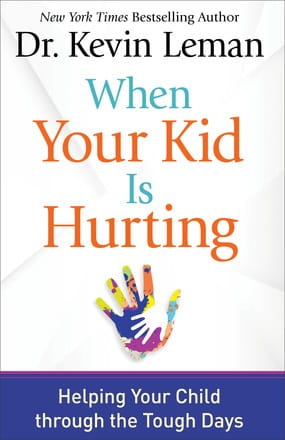
It’s not unusual for parents to want to eradicate the problem themselves. They want to fix things, make the situation return to normal. However, if the child is not involved some way in the solution (age-appropriately, of course, and depending on the nature of the problem), all you’re teaching her is, “There, there, dear, you don’t have to do anything. Mom or Dad will fix everything for you.”
That might initially sound nice and kind, but it isn’t good for her long-term welfare. If you fix everything for her, how can she cope without you around? Will you be around when she’s in college or has her first job?
Also, fixing everything for your child tells her, “I don’t think you’re capable of doing anything yourself, so I’ll have to do it for you.” Eradicating the problem without involving your child isn’t very respectful.
I saw an example of a parent trying to run interference for her child just yesterday. When I was walking into the grocery store, a kid about 5 years old was right in front of me. Frankly, he was in my way. He was dawdling unnecessarily, walking sideways, and exploring the toys in his hand. Clearly, he wasn’t paying attention to anything or anyone else around him.
The mom was quick to tug at his arm and say to me, “Oh, excuse him.” She shot me an apologetic smile.
Will she be doing the same thing when he’s wandering around in first grade and doesn’t line up with the others at recess? “Oh, excuse him—he just doesn’t know how to pay attention yet.” It would have been better if she directly addressed the child: “Ethan, a man behind you is also trying to walk into the store.”
If she had done so, that wandering willy-nilly child would have had a wake-up call that he and his toys aren’t the only things in the universe. Addressing the situation in such a way would have been age appropriate and the right thing to do.
Running interference for any child so he won’t realize there’s a problem or pain associated with life is never a good idea. When problems and pain crop up, your child will feel isolated, thinking, I’m the only one in the world who ever has problems.
Down the road, who is the one who will make decisions about how to respond when bad things happen? Your child himself. So don’t be too quick to jump in and fix the situation. It’s a natural instinct, but fight that urge. Instead, use this situation—as much as you don’t like it—to assist your child in developing good decision-making skills.
In the Westerns I used to watch as a kid, if someone was going to have a baby, one person would say to another, “You better boil some water.” Then the first person would roll up his sleeves. Two minutes later, you’d hear the cry of a baby.
That’s what you do sometimes as a parent. You roll up your sleeves, dig in, and help as best you can. But you have to help that baby be born, not hinder it. Trust me, you’re hindering when you do everything yourself or you do too much of it. Each person has to go through a few birth pains and experience the process step-by-step.
Part of being a parent is learning that fine balance of letting go so your child can grow emotionally. It’s true in this case too.
Children who are a part of the solution to a problem develop higher self-worth and the ability to work through other issues with confidence in the future. They think, You know what? I can deal with this. It is getting better. I’ll get through it. They become inventive with solutions the next time something similar occurs. That’s because their parents treat them as competent, even in this difficult situation.
They become the children who stand up to the bullies of life, who say no to group peer pressure to do drugs. They also become the adults who can take the inevitable hard hits that come, get up, dust themselves off, and go on with determination and purpose.

Photo Courtesy: Thinkstock


